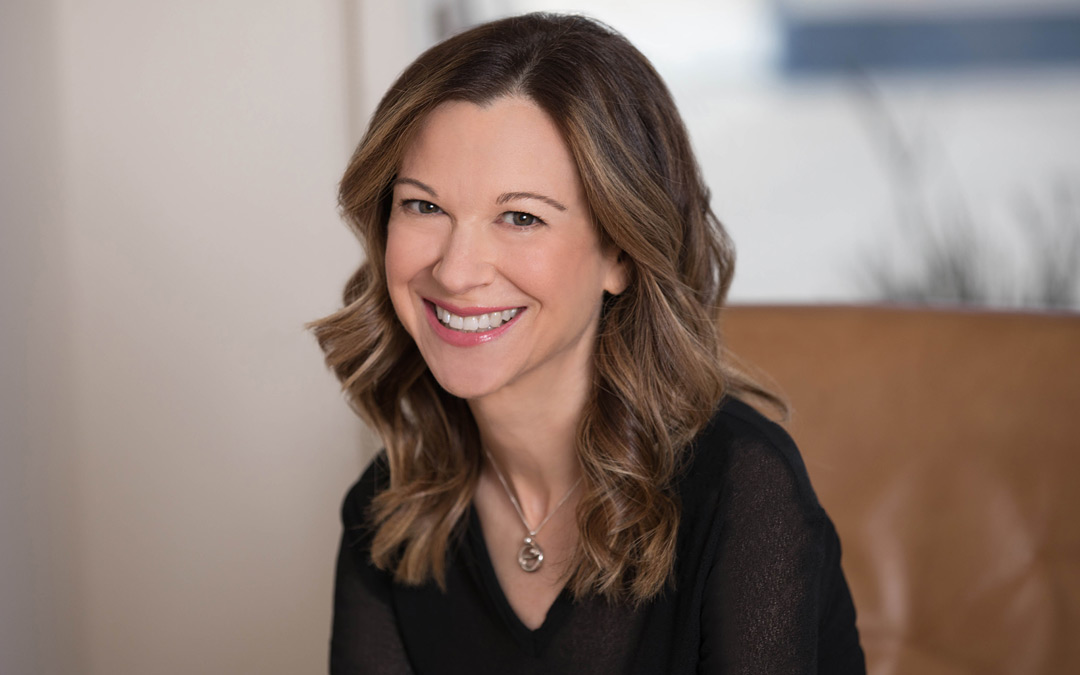(Editor’s Note: This event has been cancelled by its organizers due to the coronavirus situation. The Soul Center hopes to present Lori Gottlieb’s talk virtually in the future.)
If you’re in therapy, maybe you’ve wondered how your therapist really feels about you. Does she like you? Are you boring him? Why doesn’t she ever say anything?
You may wonder about your therapist’s personal life, too. Where does he live? Is she married? Does he have kids?
You may assume her life is perfect, that she’d never need to consult a mental health professional. On the other hand, if you’ve never been in therapy, you may wonder what all the fuss is about. Why should you pay someone to listen to your problems? You’ve got friends who will listen to you kvetch for free. Right?
In her new memoir “Maybe You Should Talk to Someone: A Therapist, Her Therapist and Our Lives Revealed” (Houghton Mifflin Harcourt), Lori Gottlieb explores all of these questions. A marriage and family therapist, bestselling author and The Atlantic’s “Dear Therapist” columnist, Gottlieb writes about the art of psychotherapy, and even more about the human condition.
Recently, Jmore spoke with the Los Angeles-based Gottlieb about her book, her work as a therapist and her own experiences as a patient. Gottlieb will discuss “Maybe You Should Talk to Someone” at Pikesville’s Soul Center at Beth El Congregation, 8101 Park Heights Ave., on Mar. 17.
Jmore: What compelled you to write this book?
Gottlieb: Originally, I was supposed to be writing a different book. I had written a piece for The Atlantic called, “How to Land Your Kid in Therapy,” which was the most emailed piece in the magazine’s history, and I was supposed to be writing a book about that. But I didn’t want to write a book about ‘helicopter parenting.’ I wanted to write a book about adults, and my agent said, ‘Oh, you want to write a book about happiness!’
I didn’t want to write a happiness book either. I had just started my practice and I felt like the happiness book couldn’t capture the day-to-day problems in life that I was seeing in my office. Obviously, we all want to have a happy life and I knew that I could pull together some interesting studies, but happiness as an end-goal is just scratching the surface.
I didn’t feel connected to it. I called it the ‘misery-inducing happiness book.’ I had an agent at the time, who I no longer have, who said, ‘You have to write this and then you can write what you want.’
Eventually, through my therapy, I realized maybe I don’t have to write it. So I cancelled the book contract and fired my agent. I started writing about what I was seeing in the therapy room, about universal themes we all share and the human condition. I didn’t think of putting myself in the book until I realized I needed to be vulnerable, just like my patients. I wanted to show that we are more the same than different. I didn’t want to be ‘the therapist’ up high.
Many people wonder, ‘Why do I need to talk to a therapist?’
I talk in the book about ‘idiot compassion’ and ‘wise compassion.’ Idiot compassion is where you want to make somebody feel better, so you don’t necessarily tell them the truth. You go along with their story, back up their side of the story.
With wise compassion, we hold up a mirror, we show [people] their blind spots, we have the vantage point of not living in their lives. [The therapist] doesn’t have an agenda. A friend or family member might have their own agenda about why they don’t want you to change. Therapy is a really good second opinion on your life.
Your advice on choosing the right therapist?
Your relationship with your therapist is the most important factor. A first session is a consultation. You’re not in therapy with that person. You want to see how you feel in the room with that person. Did you feel like he understood you?
Go back a second time. Is something off? If something doesn’t feel right, you can bring it up with the therapist or go see someone else. You don’t have to worry about hurting someone’s feelings.
Trust your gut. If you don’t feel like it’s a good fit, you don’t have to have a reason.
People don’t always realize many therapists have their own therapy as part of their training. Did you do that?
I did. It’s hard to understand all the psychological processes from the patient’s side if you haven’t been a patient. What is it like when you wonder if your therapist likes you? What’s it like to be really attached to someone you can’t have a friendship with? When you hear that person’s voice in your head during the week between sessions? It’s a unique experience.
How did your patients react to the book?
Before the book tour, I never told them I wrote a book. When I came back, some people came [to therapy] and said, ‘Oh, I read your book.’ We had these deep conversations that expanded our work. The conversations weren’t about me but about the relationship in the room. They were able to look at themselves from a different angle. They might say, ‘I’m like that person or this person in the book. We’ve talked about it, but now I see it more clearly.’
Then, there are [patients] who haven’t said a word about the book. I made a conscious decision not to bring it up with them. I would hope I’ve created a safe space where they can bring it up, but I’d want it to come from them.
What about your therapist? In the beginning of the book, you talk about him being a therapist from ‘Central Casting.’
I think he was really honored by it. I think that what I’m trying to show is how distorted our stories and our perceptions can be, and how they change. How I thought of him in the beginning was very different than how I saw him at the end.
Any advice on how to get the most out of therapy?
Patients need to know going in that they’re going to have to make some changes in their lives, internal or external, not just download the problem of the week and then download the next week’s problem of the week. You can have all the insight in the world but it doesn’t mean anything unless you make changes in your life.
You have to be willing to look at your own role in what’s not working in your life.
For information about Gottlieb’s appearance at the Soul Center, visit https://www.soulcenterbaltimore.org/programs/an-evening-with-lori-gottlieb/





